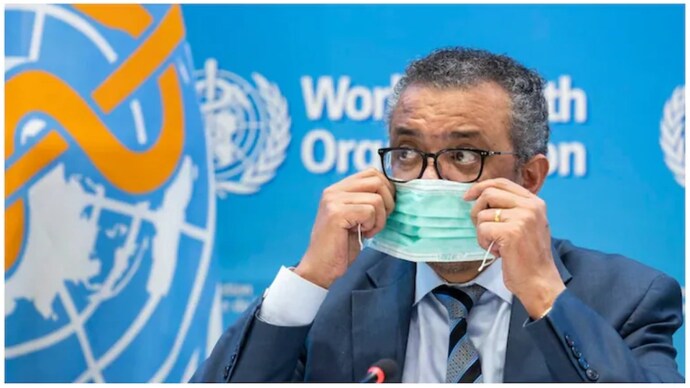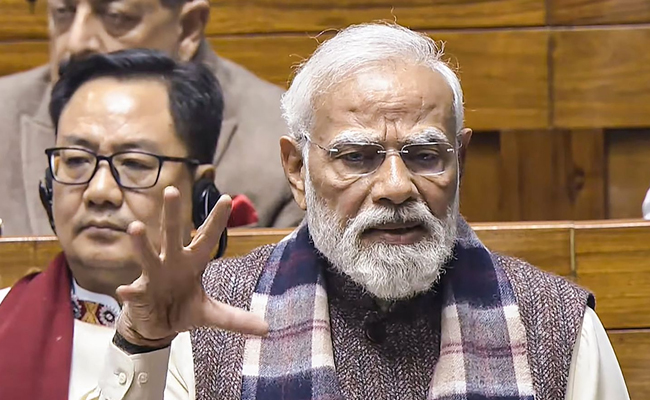Geneva, May 5: The World Health Organization said Friday that COVID-19 no longer qualifies as a global emergency, marking a symbolic end to the devastating coronavirus pandemic that triggered once-unthinkable lockdowns, upended economies worldwide and killed at least 7 million people worldwide.
WHO said that even though the emergency phase was over, the pandemic hasn't come to an end, noting recent spikes in cases in Southeast Asia and the Middle East. The U.N. health agency says that thousands of people are still dying from the virus every week.
"It's with great hope that I declare COVID-19 over as a global health emergency," WHO Director-General Tedros Adhanom Ghebreyesus said. "That does not mean COVID-19 is over as a global health threat."
When the U.N. health agency first declared the coronavirus to be an international crisis on Jan. 30, 2020, it hadn't yet been named COVID-19 and there were no major outbreaks beyond China.
More than three years later, the virus has caused an estimated 764 million cases globally and about 5 billion people have received at least one dose of vaccine.
In the U.S., the public health emergency declaration made regarding COVID-19 is set to expire on May 11, when wide-ranging measures to support the pandemic response, including vaccine mandates, will end. Many other countries, including Germany, France and Britain, dropped many of their provisions against the pandemic last year.
When Tedros declared COVID-19 to be an emergency in 2020, he said his greatest fear was the virus' potential to spread in countries with weak health systems he described as "ill-prepared."
In fact, some of the countries that suffered the worst COVID-19 death tolls were previously judged to be the best-prepared for a pandemic, including the U.S. and Britain. According to WHO data, the number of deaths reported in Africa account for just 3 per cent of the global total.
WHO made its decision to lower its highest level of alert on Friday, after convening an expert group on Thursday. The U.N. agency doesn't "declare" pandemics, but first used the term to describe the outbreak in March 2020, when the virus had spread to every continent except Antarctica, long after many other scientists had said a pandemic was already underway.
WHO is the only agency mandated to coordinate the world's response to acute health threats, but the organization faltered repeatedly as the coronavirus unfolded. In January 2020, WHO publicly applauded China for its supposed speedy and transparent response, even though recordings of private meetings obtained by The Associated Press showed top officials were frustrated at the country's lack of cooperation.
WHO also recommended against members of the public wearing masks to protect against COVID-19 for months, a mistake many health officials say cost lives.
Numerous scientists also slammed WHO's reluctance to acknowledge that COVID-19 was frequently spread in the air and by people without symptoms, criticizing the agency's lack of strong guidance to prevent such exposure.
Tedros was a vociferous critic of rich countries who hoarded the limited supplies of COVID-19 vaccines, warning that the world was on the brink of a "catastrophic moral failure" by failing to share shots with poor countries.
Most recently, WHO has been struggling to investigate the origins of the coronavirus, a challenging scientific endeavour that has also become politically fraught.
After a weeks-long visit to China, WHO released a report in 2021 concluding that COVID-19 most likely jumped into humans from animals, dismissing the possibility that it originated in a lab as "extremely unlikely."
But the U.N. agency backtracked the following year, saying "key pieces of data" were still missing and that it was premature to rule out that COVID-19 might have ties to a lab.
A panel commissioned by WHO to review its performance criticised China and other countries for not moving quicker to stop the virus and said the organisation was constrained both by its limited finances and inability to compel countries to act.
Let the Truth be known. If you read VB and like VB, please be a VB Supporter and Help us deliver the Truth to one and all.
Rajouri/Jammu (PTI): Traffic on the Mughal and Sinthan Top roads, which provide alternate connectivity to Kashmir, was temporarily suspended on Sunday due to light to moderate snowfall in the high-altitude areas of Jammu and Kashmir, officials said.
However, traffic on the 270-kilometre Jammu-Srinagar national highway -- the only all weather road linking Kashmir with the rest of the country -- was plying as usual despite intermittent rains that ended the over one-and-a-half months long dry spell, they said.
ALSO READ: India overpowered by Minhas' big hundred and pacers as Pakistan clinch U19 Asia Cup
The Mughal road, which connects the twin border districts of Poonch and Rajouri with south Kashmir's Shopian, was closed for traffic as a precautionary measure after more than three inches of snow was recorded at Peer Ki Gali on Sunday afternoon.
A group of three tea vendors are left stranded on the road and efforts are on to evacuate them to safety, officials said.
After they were trapped in the snow, the vendors made passionate appeals through video messages urging the authorities to rescue them. The Border Roads Organisation has taken up snow clearance work and is trying to reach the stranded persons, officials said.
The Sinthan Top road, which connects Kishtwar and Doda districts in Jammu with south Kashmir's Anantnag, was also closed after moderate snowfall in the higher reaches.
Both the mountainous roads usually remain closed for several months due to heavy snowfall during winter.





